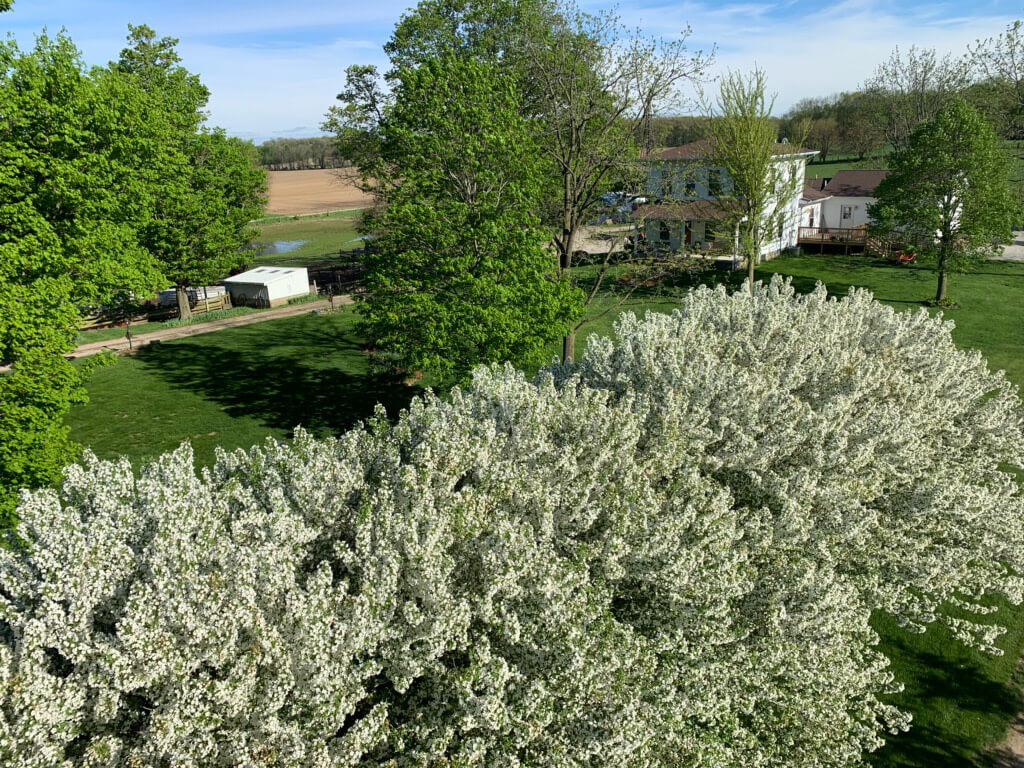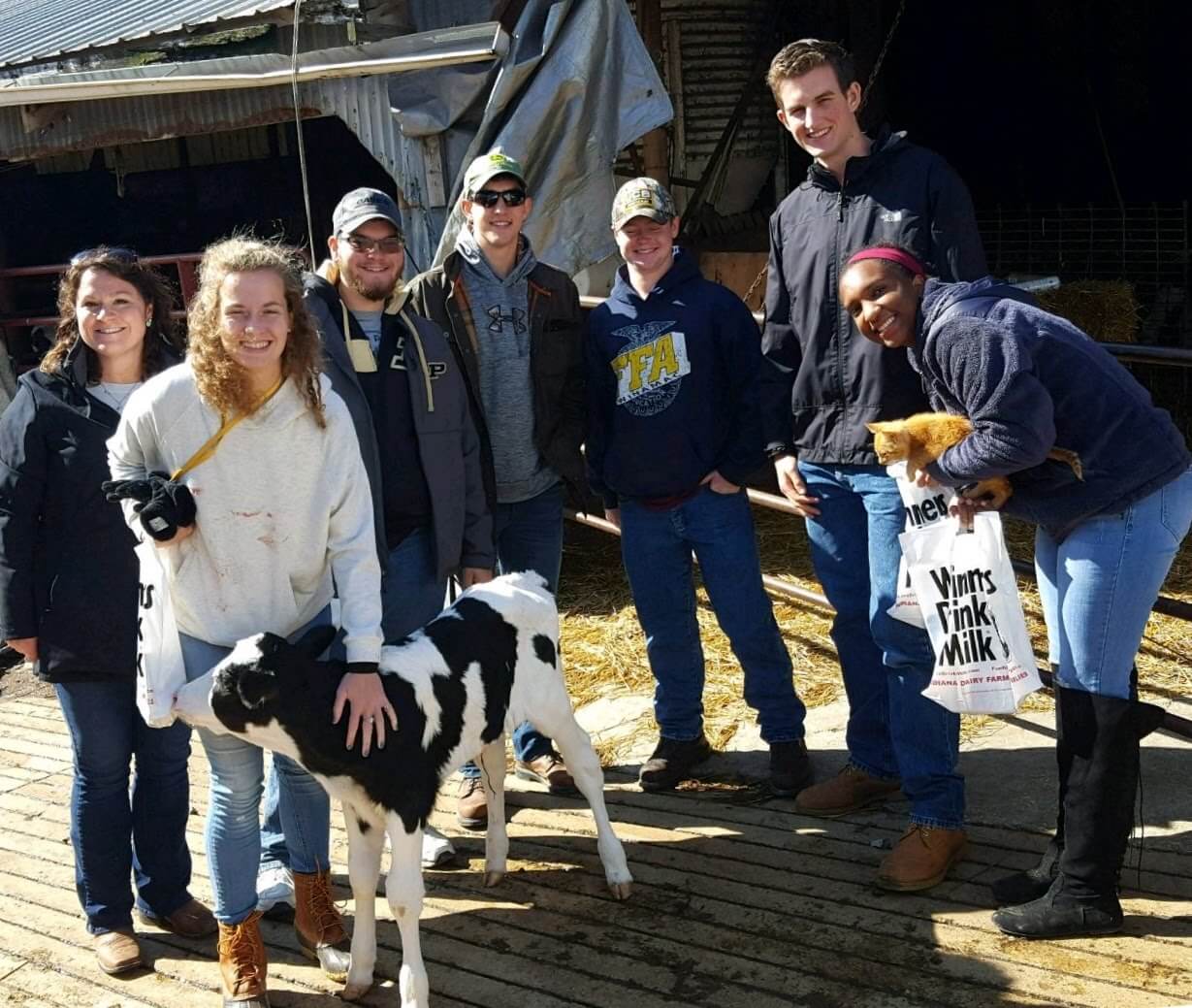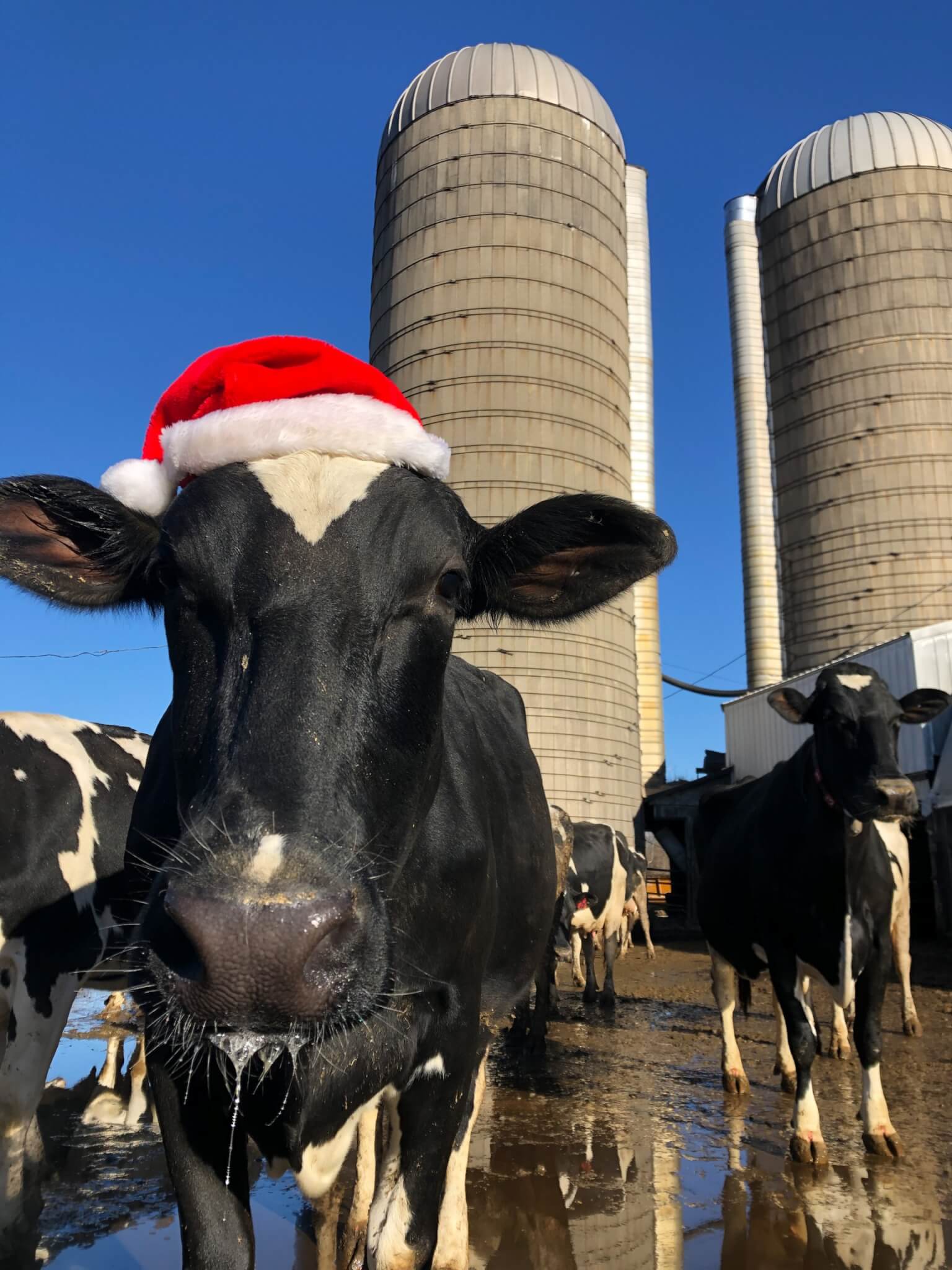National Farmer’s Day is historically celebrated on Oct. 12 as a day to honor the hardworking women and men who supply Americans with things they use every day - food, fiber and fuel. This National Farmer’s Day, we highlight two College of Agriculture staff members for whom agriculture is an integral part of their personal as well as professional lives.
Amy Jones, Assistant Director, Office of Academic Programs
Jones’ family began dairy farming in Star City, Ind., in 1942. Four generations later, the family is still milking cows along with growing corn, soybeans and alfalfa, mainly used to feed back into the dairy herd. They were the first dairy farm in Indiana and the tenth in the nation to adopt robotic milking practices. Jones’ parents, Sammy and Pam, manage the day-to-day operations with her brother, Josh, who is a Purdue Agriculture and Biological Engineering graduate. Amy helps on the farm each month along with her sister, Christy, a Purdue Animal Sciences alumna, and her brother, a Purdue Liberal Arts alumnus.
What do you like about farming?
“I love being able to do a task and see the immediate benefits. The manual labor aspect keeps me grounded, and makes me appreciate everything my parents and the agricultural production side of the industry does. It reminds me of where I came from and makes me feel more connected to nature and the world.
“It also means quality time with my family, which means a lot to me. I’m so proud of my family and have learned so much from them. My heart is typically not any fuller than when I’m working alongside my family on farm projects and we can see the reward for our hard work with the people we love. I’m also really proud that my family uses intentional practices and works to be a self-sustaining, family operation. That’s a tough thing to do in the farming industry. They are resilient people, and I’m really proud of them for that and their openness to sharing the operation with others.”
How is your work at Purdue connected with your work on your family's farm?
“Overall, I think it makes me better at my job, to have the opportunity to remember where I came from. My dairy farming background is a huge part of my work ethic. I’ll include my family’s story in recruitment presentations when it is relevant, which it always seems to be. Robotic dairy farming is a great example of how technology has been implemented in our industry. Showing individuals that I myself know an early adopter of technology in the agriculture industry helps me build credibility, and it’s a side bonus for me that I call them Mom and Dad.”
You can follow along with the daily activities at Jones Dairy on their Facebook page - facebook.com/JonesRoboticDairy.
Mark Kepler, County Extension Director - Fulton County
Mark Kepler and his wife, Roberta, live on a 258-acre farm in Argos, Ind., that has been in the family for 110 years. They also own farmland Kepler grew up on near Culver, Ind. In the past, they’ve had beef cattle, pigs, sheep, rabbits, poultry and goats. They currently manage a herd of breeding goats, mostly Boer. Roberta is also the third-generation partial owner of a South Dakota Angus cattle ranch, and the two make frequent annual trips to help on the ranch.
 Home farm of Mark and Roberta Kepler in Argos, Ind.
Home farm of Mark and Roberta Kepler in Argos, Ind. What interests you about agriculture and farming?
“My master’s is in animal science from South Dakota State University and livestock is where my main interest lies. I work with animals every day, personally and professionally. I talk to producers and other Extension educators almost daily about animals and livestock management. Because I manage ruminant animals, I also enjoy learning about rotational grazing and working with forages. I experiment with different types of forages on my farm like chicory, Sudan grass, clovers and different cropping mixtures. I then observe what the goats like best and how they do on my farm.”
How is your work at Purdue connected with your work on your farm?
“I’ve been an Extension educator for 35 years and lived on our farm for 25 of them. Not a day goes by where I don’t relate at least one thing from my job to the farm or the other way around. Recently, I spent time removing invasive species on my farm. Because I learn about them in my job, I’m aware of their potential impact and I can talk with people about how to remove them from the successful treatments on my farm. When the Emerald Ash Borer came along 10 years ago, my farm had mostly ash trees and it made me even more keenly aware of the issue. I spoke with many people about having timber sales before the borers did their major damage.
“Having my animals gives me the perspective in areas of feeding, health, management and animal behavior. In addition, owning land and cattle in South Dakota also gives me perspective on the cattle market. I have written a weekly newspaper column for most of my 35 years with Extension. I use my experiences on the farm in Indiana and South Dakota and tie them back to educational topics in the column.
“I also enjoy leading educational programs on beginning livestock management. My goals are to teach livestock owners as much as possible to reduce potential animal death. Using both my knowledge and experiences, I can help them enter the profession or decide maybe, this is not for them. I love to learn, and I like to teach. What a great job to do both!”
You can find Kepler’s weekly newspaper articles and other column submissions at extension.purdue.edu/Fulton/







